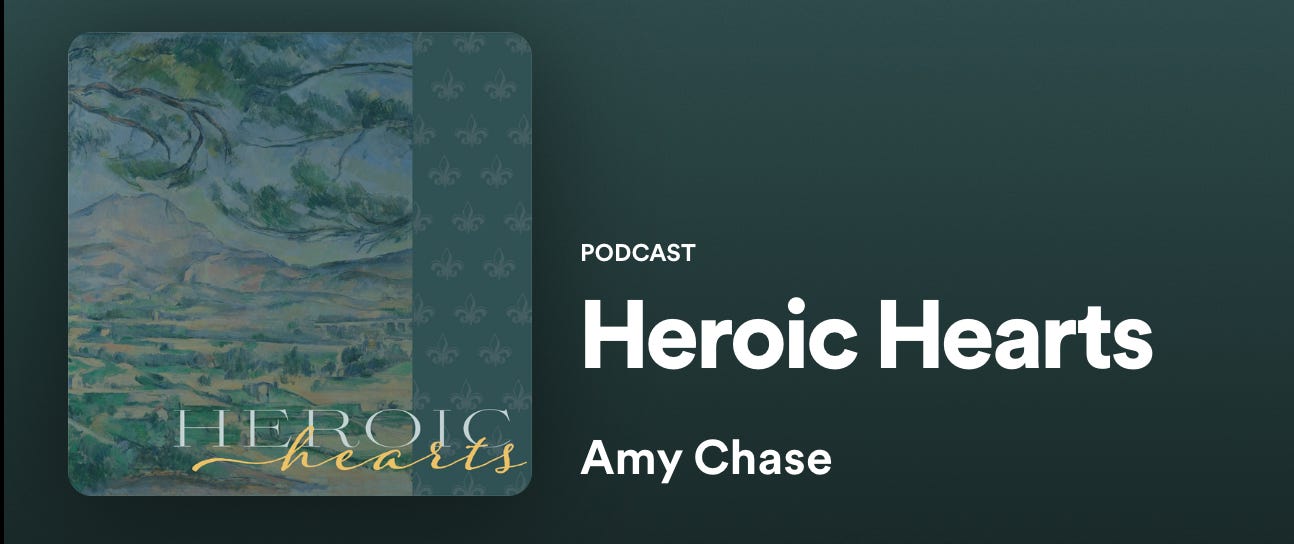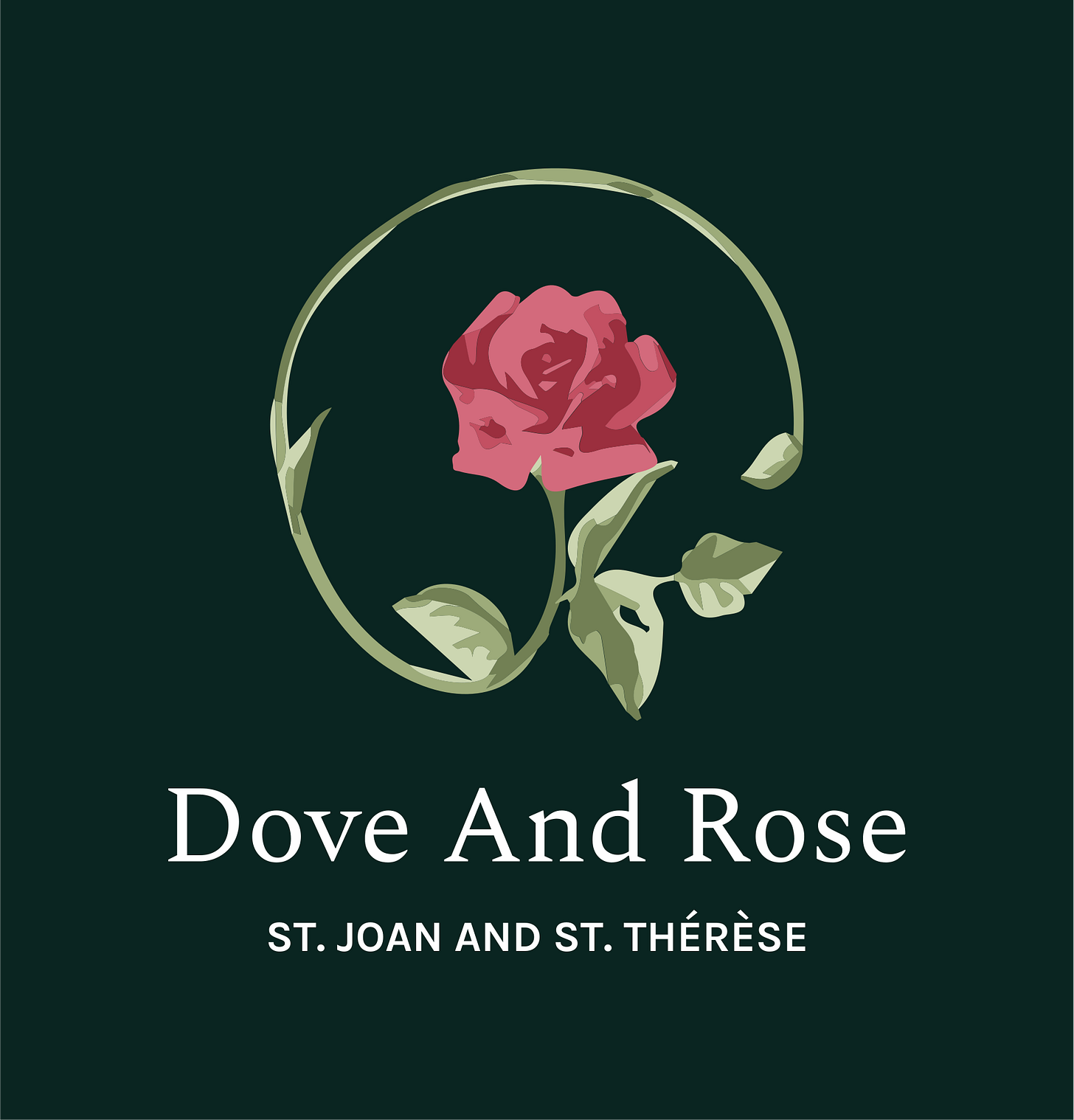What was Thérèse’s relationship to Being?
To establish the project's foundation, we will ask: 'How does Thérèse stand with Being?'
The Dove and Rose offers free and paid subscriber options. Publications from my books are paid subscriber only. Much of the rest is free. If you enjoy The Dove Rose regularly, consider becoming a monthly or yearly paid subscriber.
I also have a tip jar in the main menu and after each post. If you enjoy a post and want to make a one-time contribution to my work, the gesture will be much appreciated!
Most importantly, enjoy yourself because I appreciate that you are here.
St. Thérèse gave us a spirituality of perfection grounded in the ordinary mysticism of phenomenological comprehension. The immensity of this gift and its correlation to Heidegger’s concept that ‘presence is not Being’ compel us to further seek a comparison between them based on the latter’s terms. Can we translate Thérèse to Heidegger’s phenomenology of Being? This would bridge the mystical world of the saint and Doctor of the Church to the natural world of phenomenology. Therefore, we will allow Heidegger the honor of opening the discussion.
“From the fundamental question of metaphysics, “Why are there beings at all instead of nothing?” we have extracted the prior question <Vor-frage>: How does it stand with Being?[1]”
To establish the project's foundation, then, we will ask: 'How does Thérèse stand with Being?'
The first step is to develop correlations between Thérèse and Heidegger’s essential phrases and concepts. The goal is to translate each philosopher's language into the other's, seeking similarities and allowing differences to emerge unprovoked naturally.
Let us start with a foundational premise: Thérèse's 'ordinary mysticism of phenomenological comprehension' appears as Heidegger's 'fundamental ontology.'
Fundamental ontology is Heidegger's essential understanding of the phenomenology of Being.[2] His ontology is compellingly clear once the concept is revealed. It is a discovery, which is the essence of the phenomenological approach.
"Dasein is ontically distinctive in that it is ontological." (Being and Time).[3]
Once we understand what Heidegger means by 'ontic' versus 'ontological' (a difficult challenge), it is the most elegant of his phrases.
William Richardson translates Heidegger's text differently, which is even more enlightening.
“… the ontic excellence of There-being (Dasein) consists in the fact that it is ontological.”[4]
Our ordinary, daily activities in the world of being (ontic) become excellent when we are 'resolved' in ‘foundational thinking’ (ontological).[5] More clearly, our excellence in the ordinary world is a transcendence in everydayness through foundational thought that seeks understanding in a matrix of meanings. The cashier at the store is ‘being’ to me (ontic), yet I perceive the exchange through a lens of overlapping meanings (ontological).
However, it is essential to understand that we can only transcend the ordinary by living in the ordinary. The meaningful ontological relationship is discernable because I am ontically with the cashier in the store. The ontological (existential) is always the same world as the ontic (existentiel). They are the same world. We do not transcend to a mystical mountaintop to discern Being. We discover Being through ordinary living. While grocery shopping, we transcend as a mode of being as long as we are resolved through an awareness of fundamental ontology, not by escaping the ordinary world, but by rejecting the 'everydayness' of the inauthentic 'every man' while we are in the world.
Thérèse, on the other hand, sums it up using the simplest of examples.
"Pick up a pin from a motive of love, and you may thereby convert a soul."[6]
Remarkably simple. Thérèse had a natural (and God-given) orientation to perceive the world phenomenologically. She saw through multiple layers of Heidegger’s thinking in a glance. She likely did not think in terms of ‘ontic’ and ‘ontological,’ but more importantly she existed in that transcendence through the ordinary. She did that naturally through a phenomenological orientation and supernaturally through grace. Her world was the ordinary and the ontological. She did not experience visions and locutions. She lived a simple life in the convent and experienced dryness in her prayers. Her ‘Little Way’ of childlike trust in God was living ontologically and foundationally in the world of ontic beingness.
What remains hidden in Thérèse’s way is the supernatural life of grace. She uncovered more at a glance in the phenomenological journey than Heidegger but in a correlative manner. Thérèse saw mystically beyond Being to I Am as the fountain of this grace.
“Jesus alone can make our deeds of such worth, so let us love Him with every fiber of our heart.”[7]
I will continue the comparison with Thérèse's 'picking up a pin' (an ordinary, everyday act if there ever were one) as the first correlation with Heidegger's elegant but opaque concept of ontic and ontological modes that he termed later as, ‘the ontological difference.’.
From here, we will bring more Thérèsian examples of Heidegger's fundamental ontology, particularly: where in Thérèse do we see her resolved in foundational thought?
Check out The Dove and Rose podcast here and on Anchor, Spotify, or Apple.
Check out the Heroic Hearts podcast on Substack, Spotify, or Apple. Heroic Hearts is a podcast about healing, enchanting, and elevating our hearts through the stories and spirituality of St. Joan of Arc and St. Therese of Lisieux. Co-hosted with Amy Chase.
[1] Heidegger, Introduction to Metaphysics, 45.
[2] Richardson, Heidegger - Through Phenomenology to Thought, 15. This effort to lay bare the foundations of ontology was called in the early years “fundamental ontology,”
[3] Heidegger, Being and Time, 39.
[4] Richardson, Heidegger - Through Phenomenology to Thought, 58.
[5] Richardson, 16. The thought which interrogates the foundation of metaphysics, we call simply “foundational“ thought.
[6] Thérèse, The Story of a Soul: The Autobiography of St. Thérèse of Lisieux, 322.
[7] Thérèse, 322.
Want to hear a discussion on St. Joan and St. Thérèse? Check out Heroic Hearts, a podcast devoted to a spiritual adventure with St. Joan of Arc and St. Thérèse of Lisieux. Co-hosted with Amy Chase.






